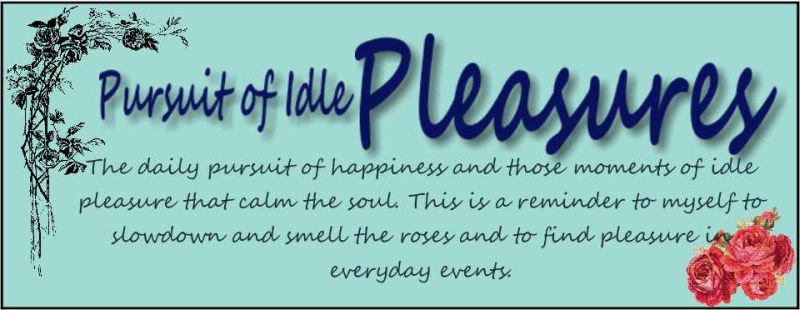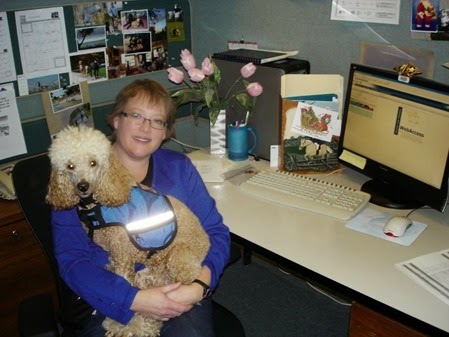This is my first shot at this topic. It is okay I guess, but technospeak turned it into a boring list of what I did. It isn’t all that meaningful either if you aren’t a computer person. I’m re-writing it now to put some life in it and hopefully remove some of the technobabble but it is proving difficult. I’m giving myself until Thursday’s writing group meeting to get it done. I’ll read it out loud to the group then to get some feedback.
~
Not a Cowboy
From my first serious boyfriend, through the ups and downs of becoming an adult, my years with Carm, the highs and lows of pursuing my dreams, and dealing with an illness, my job was the backbone of my life.
I had no idea what I wanted to be when I 'grow up'. It was impossible to be a cowboy, my marks weren't good enough to be a vet or an architect and by the time I was through grade 13 I knew I didn't want to work in a kennel. I had no clue. As it happens, fate and good timing got me a job in the federal government documenting master files. If you don't know what that is, have no worries, I didn't either. I was clueless when it came to computers and technology. Home computers were a thing of the future and the Z100 that my engineering boyfriend had was of no interest.
The first day of work I felt like I had landed on an alien planet. Dressed up in an unfamiliar dress and high heels, I tottered after Mr. Jenkins, the head of the project, trying to figure out what he was saying. The acronyms and technical terms were like Greek to me - seriously. But I paid close attention and eventually my pretty little blonde head started to put things together. In fact, I learned this new language remarkably fast, and found what it had to say fascinating. A computer geek was born.
After the first project with the master files we started documenting the applications (we called them systems back then), that the department ran. I entered the data collected into an archaic word processing machine. I don't recall exactly how many there were, but in 1982 it was around 50 (I actually have a print out somewhere). Little did I know at the time that the application inventory would be repeated over and over again, and would became my final focus before retirement.
When that project was over I moved onto what was to become my life's work. At first my job was to load the repository (we called it a data dictionary back then) with data supplied by the project managers. We were documenting the programs and files that made up an application and it was up to us to not only enter the data, but to ensure that it complied with a defined standard. At times this created a conflict between our group and others. As the years went by I became involved with designing the underlying structure of the repository, and then started running the upgrades to the existing technology and programming the system to customize the user experience.
Our department was one of the forerunners of implementing data management theories into real practice. When we moved to a new platform I wrote code that would output database create instructions from the documentation entered into the repository. Changes to the database structure would go through a work request process that ensured a consistent result. Part of this processing involved sitting with the developers to design an efficient schema. It seemed that we were constantly at odds with project managers and developers as we balanced the quick and dirty with meaningful documentation. It was not always a harmonic workplace.
The last few years it seemed that it was all futile. Upper management was no longer interested in the details of an application, they only seemed to care that it was produced quickly (no matter the quality). It looked like they might pull the plug on everything that I had been working for. In my final months of working the pendulum swung once again in favour of data management practices.
I cannot fail to mention the most important part of the job - the people on our team, starting with my first government boss, Jack Drawbridge. The hours we spent discussing theory with a pen and scrap of paper between us are a treasured memory. Blair Stannard made me feel special and part of the group from my very first day with them. He never forgot a birthday. Chris Fleming and Jo Ellen Welsford became close friends - we've known each other since the early 80s, when we were young and fresh and full of passion. Ken Buck let me take on more responsibility as I grew in experience. Roy McSheffrey let me try things on my own and grow in confidence. All of these people, and more, helped me to grow and learn. None of them held my high school education against me.
I'm not sure if I brought a strong desire for orderliness to the job, or if the job built that desire in me - most likely it was both. Once retired I couldn't stand to let disorder reign and needed a daily computer fix so I built databases about my mood, sleep, food, etc. and ran reports. I couldn't quit cold turkey!
I sometimes wonder if I would choose the same course for my life if given the opportunity. I won't say that I would jump at the chance to change because I do believe that I made a difference and I did enjoy many aspects of my work, but at the same time, being in a field where I was not constantly at odds with others might have changed my life in other ways.
~


No comments:
Post a Comment